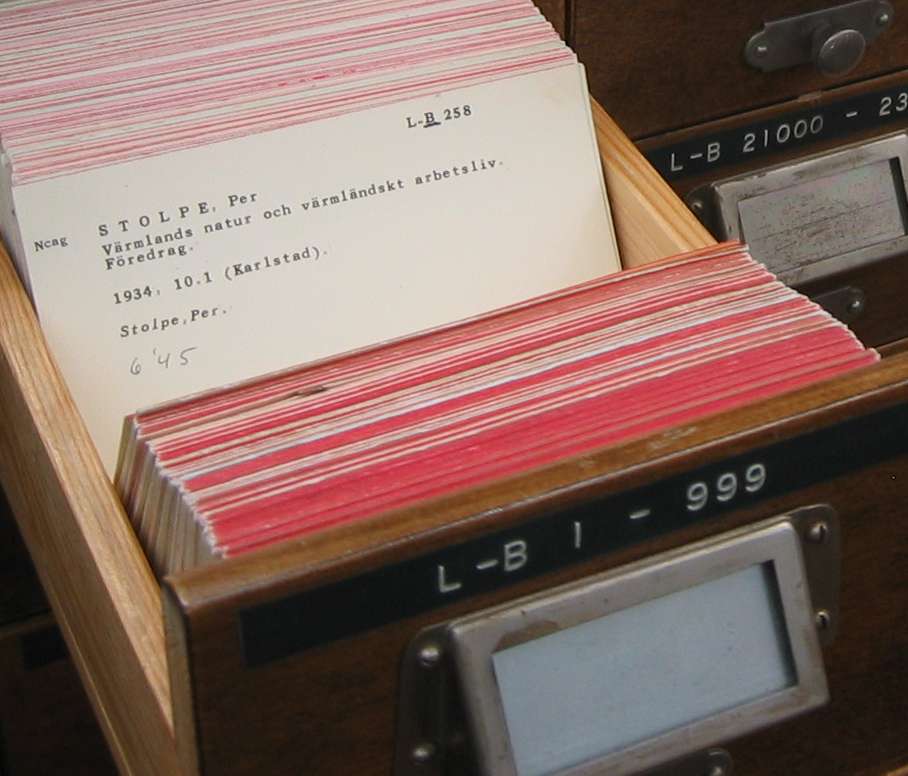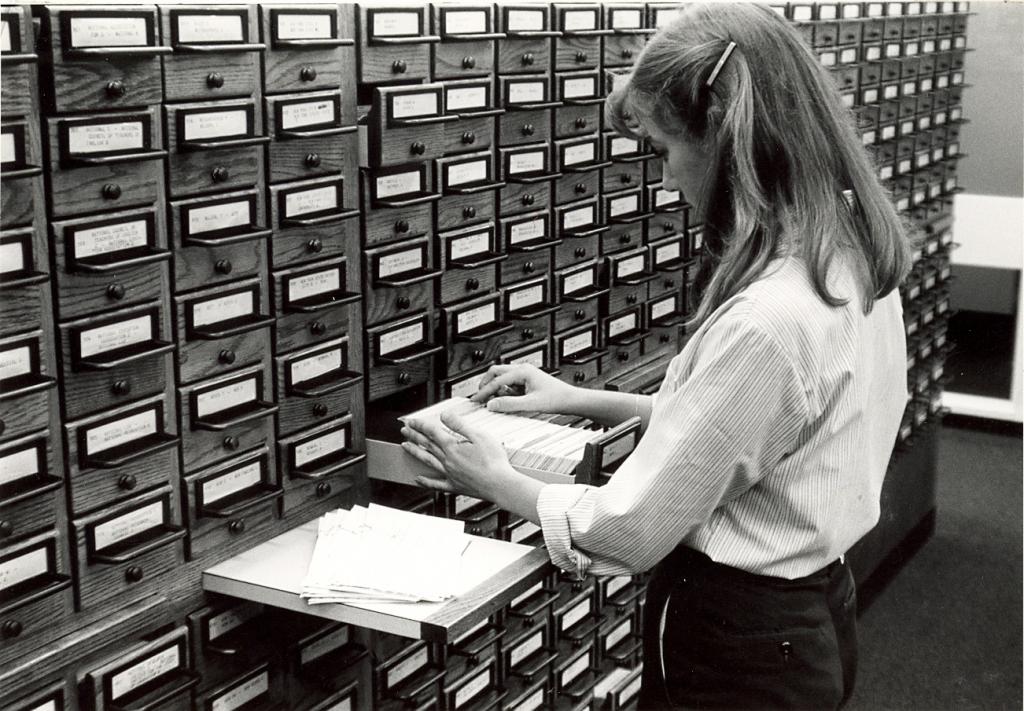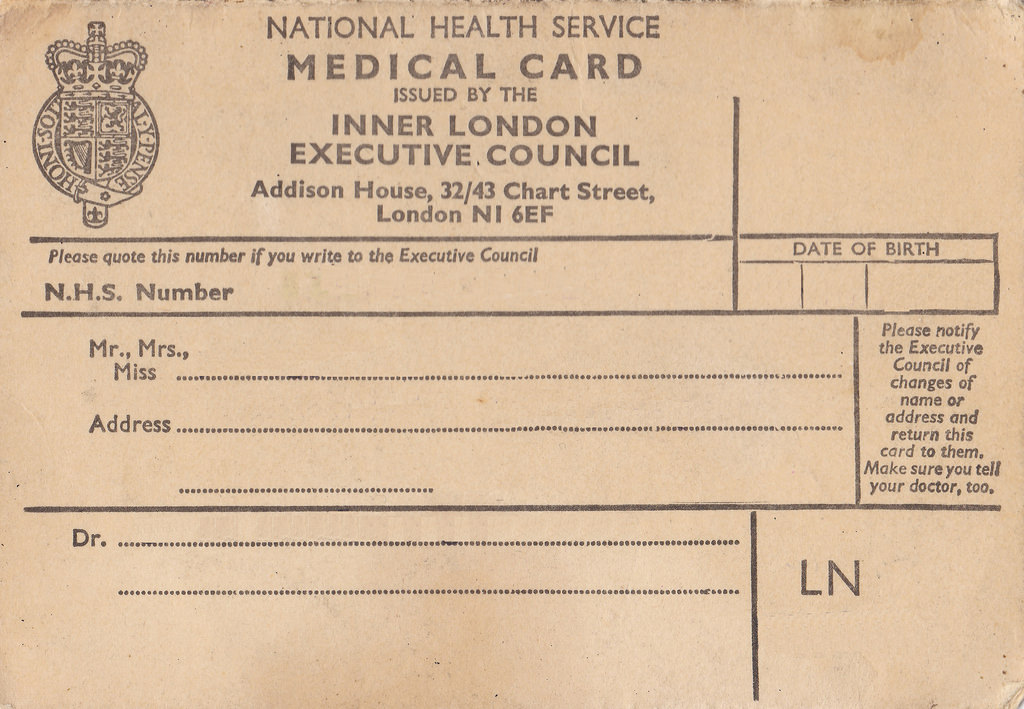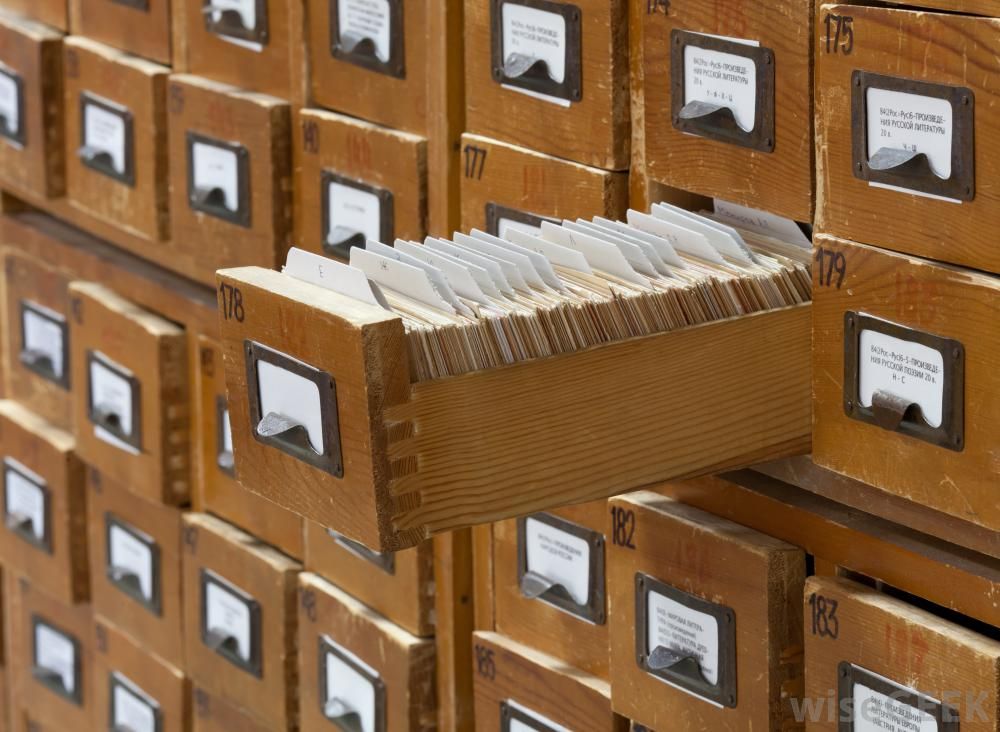At least once in a lifetime, each of us has come across such a concept as a “file cabinet”. This word sounds in hospitals, libraries, kindergartens, and even law enforcement agencies. Let's find out its meaning, as well as what it means in all of these areas.
Meaning of the word “file cabinet”
This term was coined by the ancient Greeks. Translated from their language, it meant "a place to store papyrus sheets." Over the past millennia, the semantics of the word “file cabinet” has not changed much. And today is the name of the collection of cards with data laid out in a certain order.

The goals of file cabinets are to preserve and organize information. And also facilitate her search. Therefore, the arrangement of cards occurs according to the selected criterion. Most often alphabetically. Less commonly - by year, address, number, topic, last name, etc.
Also, a file cabinet is also specialized furniture for storing the aforementioned collections. Sometimes this is called the room or department where they are located.
In fact, over the millennia since the occurrence of the aforementioned concept, only the material of cards from papyrus to cardboard has changed in its structure and meaning.
Computer era file cabinet
Before the invention of computers, which we today refer to more often as computers, paper was the main medium of information. Moreover, even the invention of photography could not supplant it. Therefore, for centuries, file cabinets did not change their appearance.

Today, there is no longer any need for them in the form they existed. Even in the most backward countries, paper filing cabinets are confidently superseded by computer information databases. That is, they evolve from physical form to digital.
This is because in the memory of a laptop, tablet or even a mobile phone, it is possible to store as much information as was previously placed in several rooms, to the top of which are cluttered with file cabinets. In addition, the process of finding the necessary file now takes seconds, while paper cards had to spend minutes, and sometimes hours.
"Card file" and "catalog"
Both of these words are closely related.

In librarianship, the collection of all file cabinets is called a directory. It is a larger form for storing general information about the entire fund. While each file cabinet contains more detailed systematic data on specific topics.
Medical Databases
If, with the advent of electronic books, people go to the library much less often, preferring to download everything and read on a computer, then a medical file is something that one has to face against their own will.
In any medical institution (whether important, public or private), each patient has his own card. It contains all the secrets about his health (symptoms, test results, treatment, doctor’s prescription, extracts from the medical history).
It is interesting that even though all these “cards” are more likely brochures or small books, they continue to bear their traditional name. The thing is, this system initially really consisted of cardboard cards with data, in honor of which this document is called.

Like all other card file systems, medical today is universally computerized in more developed countries. So far we are only going to this. However, there are already several programs adapted to our realities for maintaining the patient database, accounting for the services provided to them in hospitals, clinics and other medical institutions.True, they are specialized for paid clinics, where they are used most often.
File cabinet of arbitration cases
The judicial system has mastered new trends much faster than the medical one. At the moment, in most countries of the world, computer databases are being created containing information on cases that are or have been pending before arbitration courts of all levels and entities.

In Russia, this is a file cabinet of arbitration cases. It is a site kad.arbitr.ru, where for various search parameters, you can find all the necessary data about the court decision, if for some reason they are not classified. This resource inherited its name from the system used in the pre-computer era. While in the same Ukraine, a site with such data is referred to not as a “card index”, but as a “registry” (“Single State Register of Shipping Rates”).
And more about the law enforcement system. As you know, from the moment of its formation in all countries of the world they began to keep records of persons who previously committed crimes or were suspected of them.
Today, all this information is no longer stored in dusty folders, but is digitized and entered into computer databases.
In the Russian Federation, the Card File program has been developed to store information from the department of forensic experts of the Ministry of Internal Affairs and about persons registered. We can assume that its name is another way of interpreting the term in question.
Card file games in preschool education
The human brain absorbs information best when relaxed. Therefore, in preschool institutions, the most effective teaching method is games. With their help, children learn the rules of behavior, hygiene, try different professions and socialize much faster.

According to the requirements of the modern education system, data on such games are recorded on special cards. They contain not only the name, but also the purpose, as well as the rules.
The difficulty and the desired result of the game varies by topic and age of children. These are the main criteria on the basis of which a common file cabinet is formed.
In the group where all these games are held, there is a clear control over their results. In particular, attention is drawn to those skills that should be formed in children. Based on their results, a conclusion is drawn about the effectiveness / inefficiency of the game and the appropriateness of its further application.
File cabinets collected in this way are printed in pedagogical journals (as an example) or published on specialized sites on the Internet.
